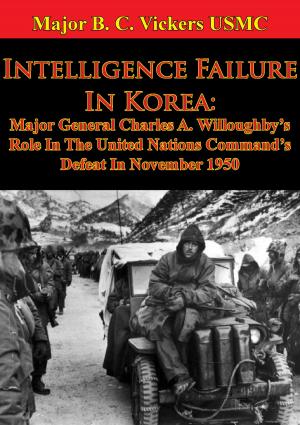Across The Border: The Successes And Failures Of Operation Rockcrusher
Nonfiction, History, Military, Vietnam War, Asian, United States| Author: | Major Donald V. Phillips | ISBN: | 9781782896135 |
| Publisher: | Normanby Press | Publication: | August 15, 2014 |
| Imprint: | Normanby Press | Language: | English |
| Author: | Major Donald V. Phillips |
| ISBN: | 9781782896135 |
| Publisher: | Normanby Press |
| Publication: | August 15, 2014 |
| Imprint: | Normanby Press |
| Language: | English |
This study examines the planning, execution, and results of US military involvement in the 1970 Cambodian incursions. Named Operation Rockcrusher, the attacks targeted North Vietnamese sanctuaries in officially neutral Cambodia. Strategic guidance for the operation reflected the Nixon administration's desire to proceed with troop reductions and quickly “Vietnamize” the war in Southeast Asia. Efforts to set conditions for a U.S. withdrawal from Vietnam, including a covert bombing campaign of Cambodia, failed. These factors, along with a deteriorating political situation within Cambodia, led to approval of the assaults.
The thesis describes the operational and tactical objectives that were derived from the strategic situation. Then, by discussing key portions of the campaign, the study examines how well the US Army accomplished these objectives. Reviewed within the context of selected battlefield operating systems, the operation reveals a decided “mixed bag” of success and failure.
The study highlights lessons that may be appropriate to today's lower intensity conflict environment and force structures. It also promotes the need to synchronize goals and objectives throughout the levels of war. It concludes that attritional warfare, a dubious legacy from Vietnam, remains a danger to the Army today.
This study examines the planning, execution, and results of US military involvement in the 1970 Cambodian incursions. Named Operation Rockcrusher, the attacks targeted North Vietnamese sanctuaries in officially neutral Cambodia. Strategic guidance for the operation reflected the Nixon administration's desire to proceed with troop reductions and quickly “Vietnamize” the war in Southeast Asia. Efforts to set conditions for a U.S. withdrawal from Vietnam, including a covert bombing campaign of Cambodia, failed. These factors, along with a deteriorating political situation within Cambodia, led to approval of the assaults.
The thesis describes the operational and tactical objectives that were derived from the strategic situation. Then, by discussing key portions of the campaign, the study examines how well the US Army accomplished these objectives. Reviewed within the context of selected battlefield operating systems, the operation reveals a decided “mixed bag” of success and failure.
The study highlights lessons that may be appropriate to today's lower intensity conflict environment and force structures. It also promotes the need to synchronize goals and objectives throughout the levels of war. It concludes that attritional warfare, a dubious legacy from Vietnam, remains a danger to the Army today.

![Cover of the book The Siege Of Lucknow: A Diary [Illustrated Edition] by Major Donald V. Phillips](https://www.kuoky.com/images/2014/june/300x300/9781782892281-AUbP_300x.jpg)

![Cover of the book With Kitchener To Khartum [Illustrated Edition] by Major Donald V. Phillips](https://www.kuoky.com/images/2014/august/300x300/9781782899235-69qS_300x.jpg)


![Cover of the book The Invasion of the Crimea: Vol. VII [Sixth Edition] by Major Donald V. Phillips](https://www.kuoky.com/images/2017/january/300x300/9781787203495-t7t0_300x.jpg)



![Cover of the book With H.M. 9th Lancers During The Indian Mutiny - The Letters Of Brevet-Major O. H. S. G. Anson [Illustrated Edition] by Major Donald V. Phillips](https://www.kuoky.com/images/2014/august/300x300/9781782894902-UtXS_300x.jpg)




